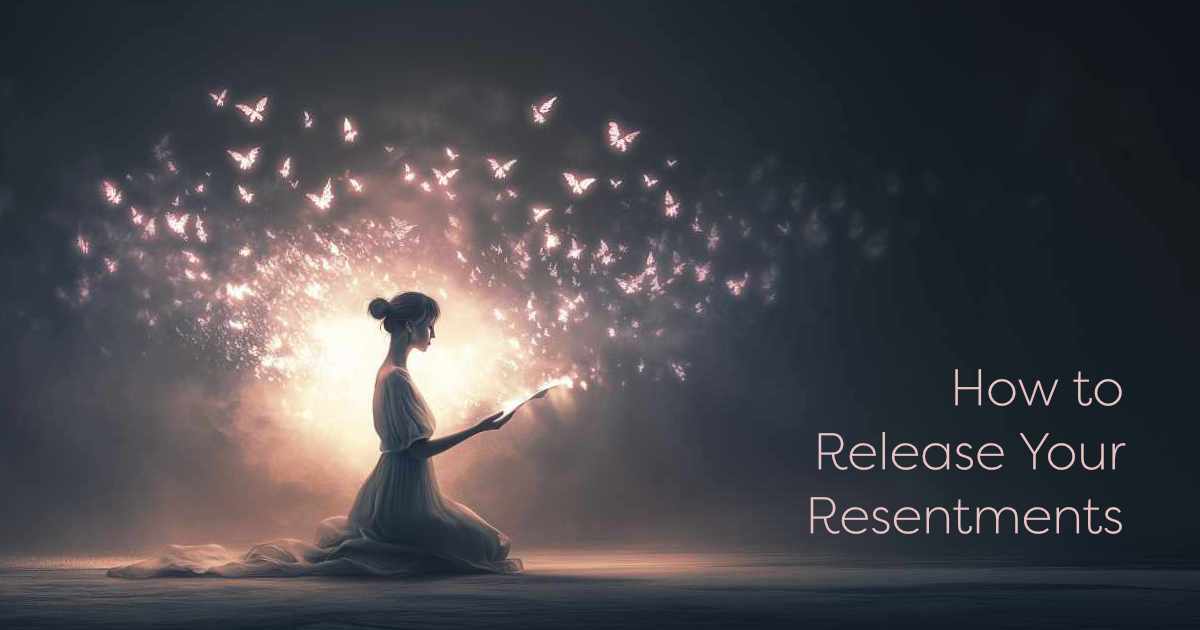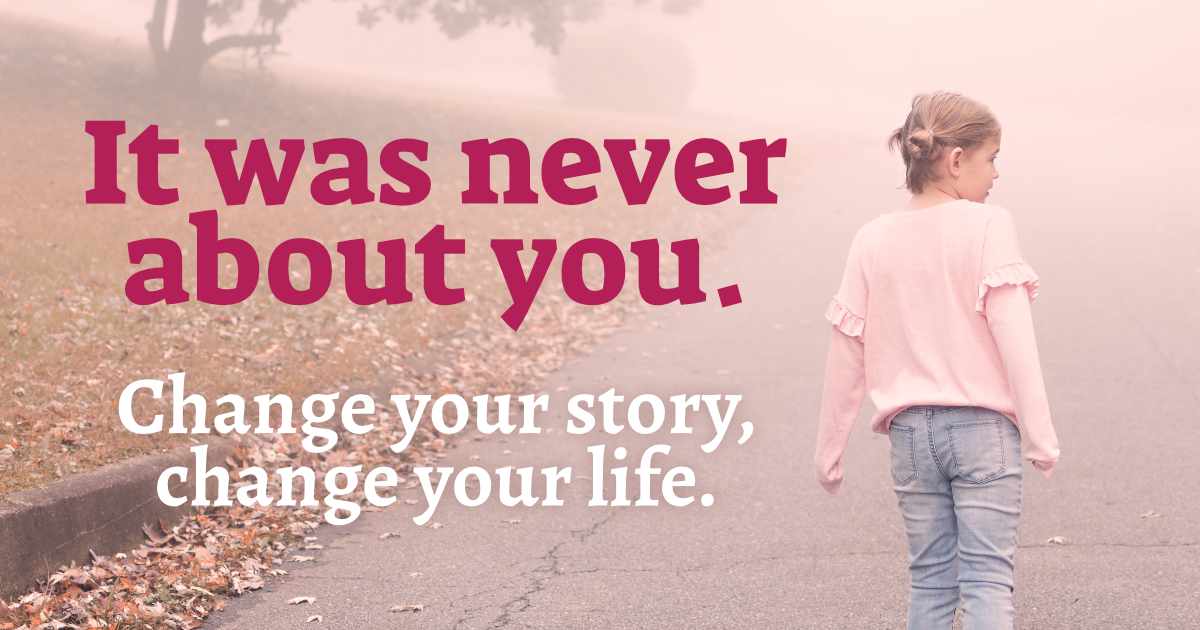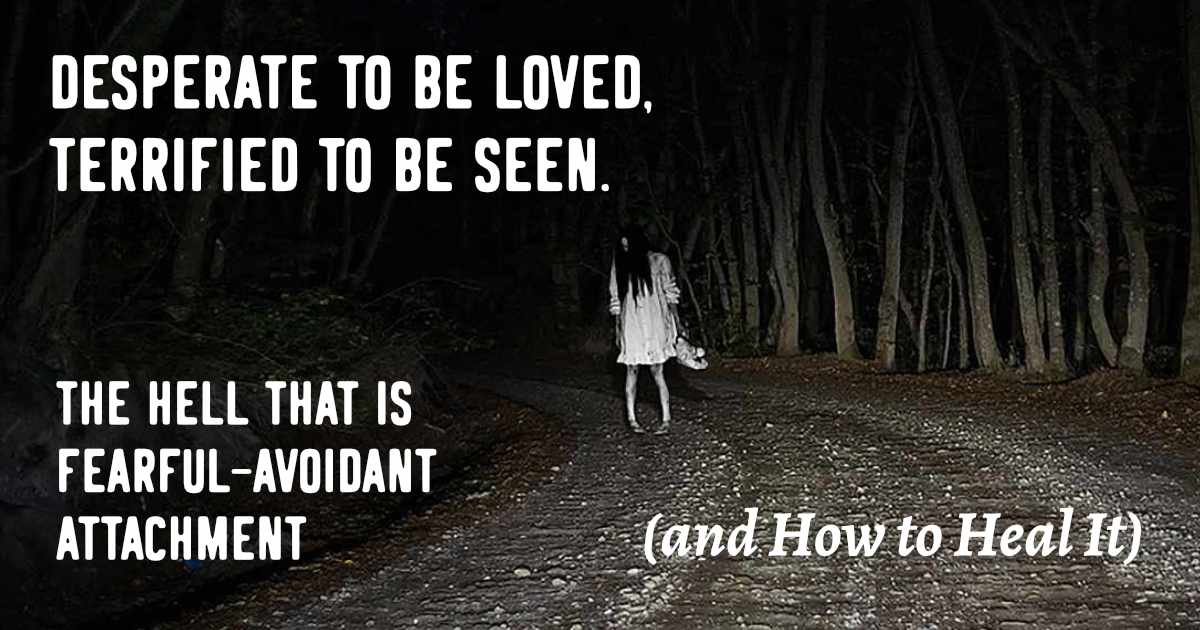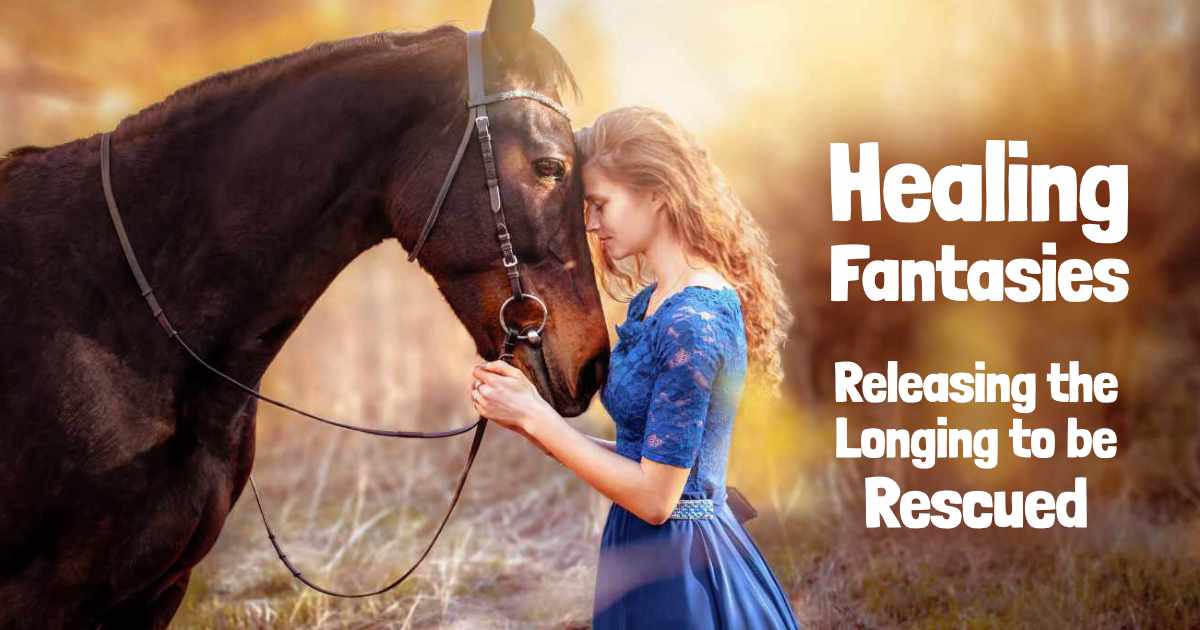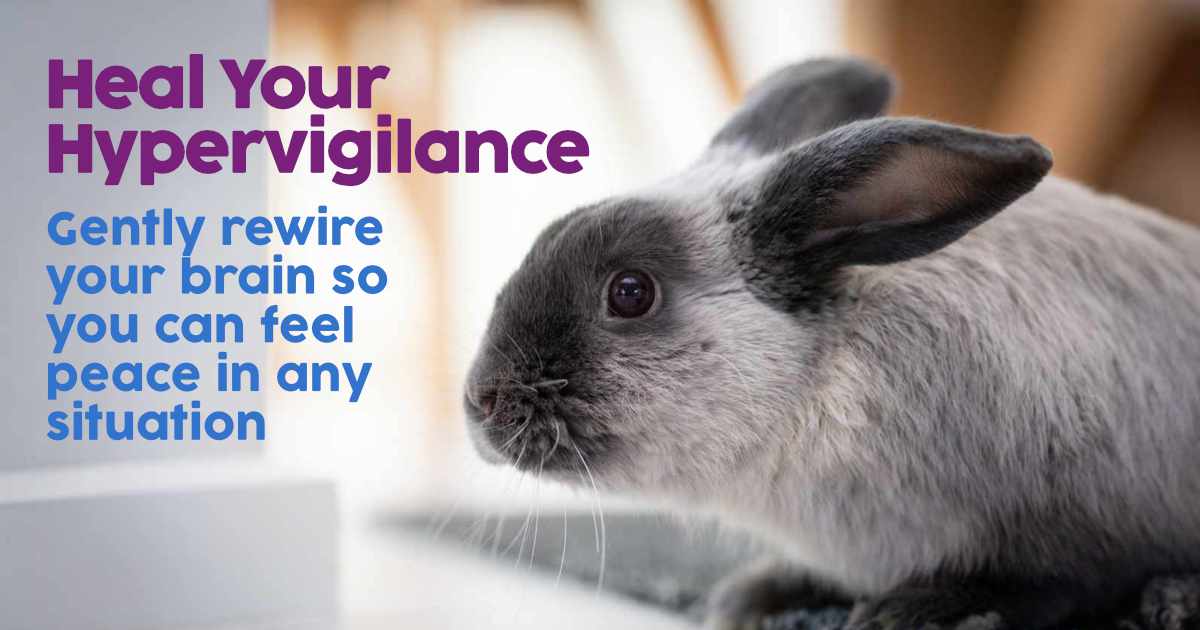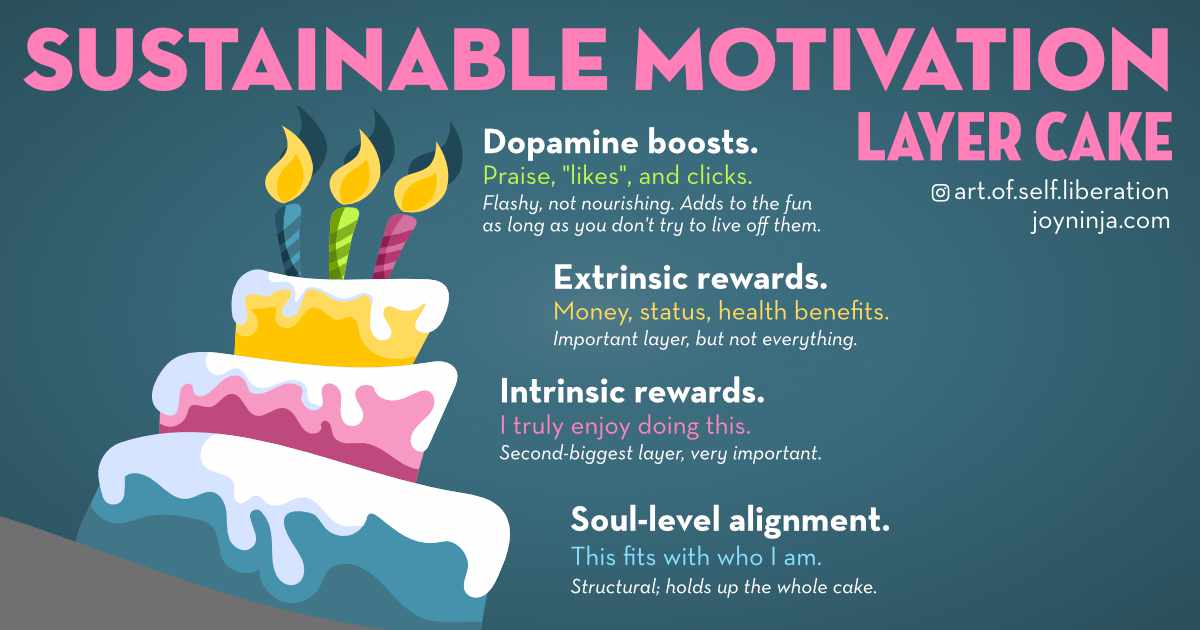All Healing is Spiritual Healing
Where psychology and spirituality meet.
I have studied psychology and spirituality for a long time, and I always keep my feet in both worlds. So while I write about attachment and healing mostly in the framework of modern psychology and trauma, I actually think of it more broadly from a framework of my relationship between myself and the Universe. (A word that broadly stands in for the Tao, or God if you can divorce it from organized religion).
There was no single psychological framework or method that shifted my sense of alienation and feeling broken, but rather a continuous journey of going in a healing direction and having things show up that, in retrospect, where steps along the way. This includes books, videos, people, groups, concepts, internal experiences, chance meetings, etc.
On a spiritual level, I believe we call to us the healing we commit to and believe in. Neville Goddard talks about this as the “bridge of incidents” – things that show up for us when we commit.
My favorite quote also speaks to this:
“Until one is committed, there is hesitancy, the chance to draw back, always ineffectiveness. Concerning all acts of initiative and creation, there is one elementary truth the ignorance of which kills countless ideas and splendid plans: that the moment one definitely commits oneself, then Providence moves too.
All sorts of things occur to help one that would never otherwise have occurred. A whole stream of events issues from the decision, raising in one’s favour all manner of unforeseen incidents, meetings and material assistance which no man could have dreamed would have come his way.” ― William Hutchison Murray
This idea is reflected in many other teachings as well, such as in A Course in Miracles in which it states that all it takes is “a little willingness”. We must consent to our own healing for it to happen. If we insist that it can’t, it won’t–it can’t. Healing is nonviolent, and the Universe will not force it onto us. We must welcome it into our hearts–we must be willing.
I have studied trauma and attachment and different therapy methods, but this concept of willingness and commitment is the bedrock of my self-healing practice. It is the certain knowledge that I am meant to be whole, happy, joyous, and free, and so I am committed to learning how to become that. I expect the Universe to answer that commitment, and it has. Every time I truly let go of a belief that I have to sacrifice, or be broken, or be unhappy, and I commit to becoming a person who is whole, the Universe responds and the way is shown.
I have experienced this so many times, and yet I still occasionally fall out of the full faith of it. This seems to be a built-in part of being human: that we must constantly remember who we really are. That is the spiritual muscle we are building.
You can think of this purely in psychological terms: that if we have a self-concept that precludes healing, then we will prevent it from happening. We will defend a self-concept that is familiar or feels righteous, even if it makes us unhappy. I think that’s completely accurate, and I also have experienced it as a much broader phenomenon.
My Spiritual Path
I don’t have a formal spiritual path; I have what I think of as an independent mystical path. I suspect I had formal paths in past lives.
I seem to have been born with an inner desire to find answers to my questions, and a sense that the truth was knowable. This is not from a belief system or conditioning; I was raised as a scientific atheist, and my only exposure to religion as a kid was being bullied for not being a Christian in a very conservative town.
I have always had an inner sense that has directed me, and once I left home, I started exploring my affinity with spiritual concepts and gradually let go of my earlier conditioning and my fear of being seen as stupid or delusional for earnestly following a spiritual path.
I have been willing to try out any spiritual system, regardless of its packaging, whenever I can sense truth within it. The packaging isn’t important to me because I have an inner sense of what I am looking for. And I’ve found that same truth in systems all over the world, throughout history. Certain systems are easier for me to access because they are in my culture already. But I can feel whatever aspects of truth in them are also in systems that are from different cultures.
It is common to think of religion or spirituality as a belief system, but that has never been the point for me. Seeing religion as a set of beliefs rather than an invitation to a relationship has led many people to reject the rich knowledge and wisdom available in spiritual and religious frameworks.
If you allow belief to be metaphorical, and treat cosmologies like a guidebook for experience, then a whole world opens up; thousands of years of humans efforts seeking for higher consciousness, in every culture through all of time.
Belief is not required, but an open-hearted willingness to be wrong (humility) goes a long way. You must be willing to do the work of seeing through your ego and increasing your sensitivity to subtle information. None of that rests on belief. It rests on willingness to be open to what may lie beyond yourself and your sense of individuality (ego).
We all have an innate ability to sense spiritual truth; a spiritual path is about cultivating that sense and following it. The outcome is subjective, which makes it a tricky path to follow. Spiritual maturity is about learning how to discern self-delusion from spiritual truth. And devotion is about committing to your path. For some, that is done within a formal religious context. For others like myself, it is done through personal exploration.
Spiritual practice, at least the mystical kind, is a process, with an expected outcome. This is something you have to experience to understand. It’s like how physical exercise trains your body: spiritual practice trains your mind to transcend the limits of ordinary ego consciousness. The point of transcending that is to be able to access direct knowledge. So, I see all mystical paths as just different forms of spiritual exercise.
“The Tao that can be named is not the eternal Tao”. Direct knowledge arrives into human awareness as metaphor that we can understand, and belief systems come about when people take that too literally. Many metaphors contain truth; I don’t have to take them literally to find them useful. I use the language of belief without treating them as literal beliefs, but instead using them as metaphors for something that cannot be fully comprehended or described with language.
I’m not seeking enlightenment, per se—I am seeking a continually closer and clearer relationship with this sense of truth that I’ve always had. I really can’t not pursue it; it’s just in me. And I use whatever I come across that enhances that relationship.
Along the way, what I have experienced is that healing, resolving karma, and self-liberation are all the same process. They are all intertwined in some way; different aspects of the same journey. This journey is described in A Course in Miracles and elsewhere as one of continually choosing love over fear.
Self-love is a set of skills you can learn
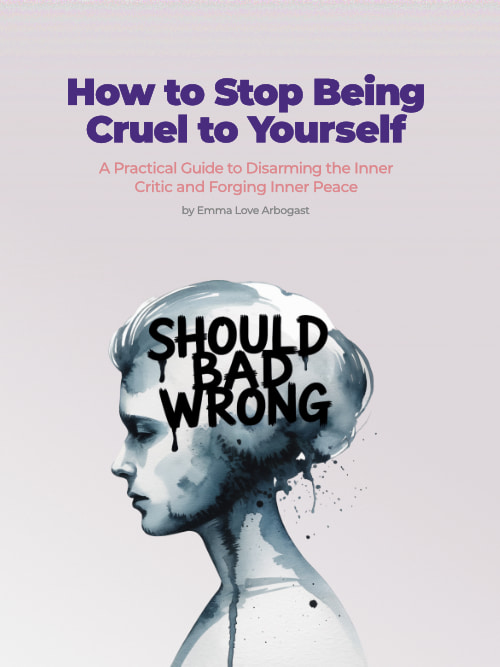
Stop Being Cruel to Yourself
$2.99
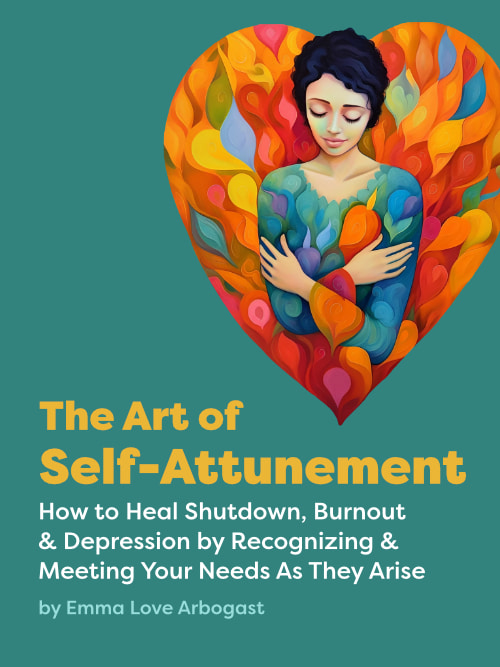
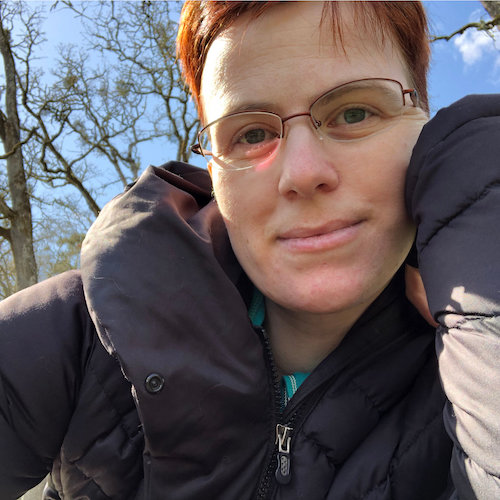
Hey there! If you're new here, welcome to the Emmaverse! 🌈✨
About me: I'm autistic/ADHD and I write about how to be free and happy from the inside out.
Keep in touch?
Self-Liberation Society
